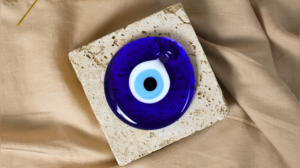Drinking a variety of alcoholic beverages can easily lead to overconsumption. The key factor is how efficiently your liver processes alcohol. Mixing different types of alcohol, such as beer and liquor, can obscure how much you've actually consumed. This increases the chances of drinking too much and feeling unwell.

When liquor is consumed before beer, its effects might be felt more rapidly due to the higher alcohol concentration. Conversely, drinking beer before liquor can impair judgment, leading to increased consumption, especially in social situations. Ultimately, the quantity of alcohol consumed over a short period matters more than the order of drinks. Monitoring your intake, pacing yourself, and drinking responsibly are crucial for your well-being, regardless of your beverage choice.
According to MedicalNewsToday, the order in which you consume different types of alcohol, such as beer and liquor, doesn't significantly affect the severity of a hangover. Instead, the total amount of alcohol consumed, the specific type of drink, dehydration levels, sleep disruption, and other factors are more influential in determining hangover symptoms.
Certain compounds found in alcoholic beverages can exacerbate hangover symptoms. For instance, darker spirits contain higher levels of congeners, which can worsen hangovers. Additionally, preservatives like sulfites in wine may trigger headaches in susceptible individuals.
According to Healthline, the common side effects of alcohol consumption include:
MedicalNewsToday reports that long-term alcohol misuse is linked to a range of health problems, including:
MedicalNewsToday suggests the following tips for responsible alcohol consumption:
Newer articles
Older articles
 Evil Eye Amulet: Protective Charm or Portal to Dark Forces? A Cultural Debate
Evil Eye Amulet: Protective Charm or Portal to Dark Forces? A Cultural Debate
 Jayden Seales Fined by ICC for Provocative Gesture During Australia Test Match
Jayden Seales Fined by ICC for Provocative Gesture During Australia Test Match
 Paralympic Archer Sheetal Devi's Viral Video Shows Her Driving Car with Feet, Defying Expectations
Paralympic Archer Sheetal Devi's Viral Video Shows Her Driving Car with Feet, Defying Expectations
 Broad Slams India's Team Selection After Headingley Test Loss, Calls for Roster Tweaks at Edgbaston
Broad Slams India's Team Selection After Headingley Test Loss, Calls for Roster Tweaks at Edgbaston
 Umpire Controversy Erupts: West Indies Coach Sammy Questions Holdstock's Consistency in Barbados Test
Umpire Controversy Erupts: West Indies Coach Sammy Questions Holdstock's Consistency in Barbados Test
 Sachin Tendulkar: 1983 World Cup Win Sparked My Cricket Dream at Age 10
Sachin Tendulkar: 1983 World Cup Win Sparked My Cricket Dream at Age 10
 Jaiswal's Fielding Woes: Ex-India Star Kaif Points to Potential Cause for Dropped Catches in England Test
Jaiswal's Fielding Woes: Ex-India Star Kaif Points to Potential Cause for Dropped Catches in England Test
 Team India's England Tour: Rahul's Sleep Strategy, Coaching Rituals, and Coffee Culture Revealed
Team India's England Tour: Rahul's Sleep Strategy, Coaching Rituals, and Coffee Culture Revealed
 Suryakumar Yadav Successfully Completes Sports Hernia Surgery, Eyes Return to Cricket
Suryakumar Yadav Successfully Completes Sports Hernia Surgery, Eyes Return to Cricket
 Gujarat Cricket Set to Launch T20 League in 2025-26 Season
Gujarat Cricket Set to Launch T20 League in 2025-26 Season